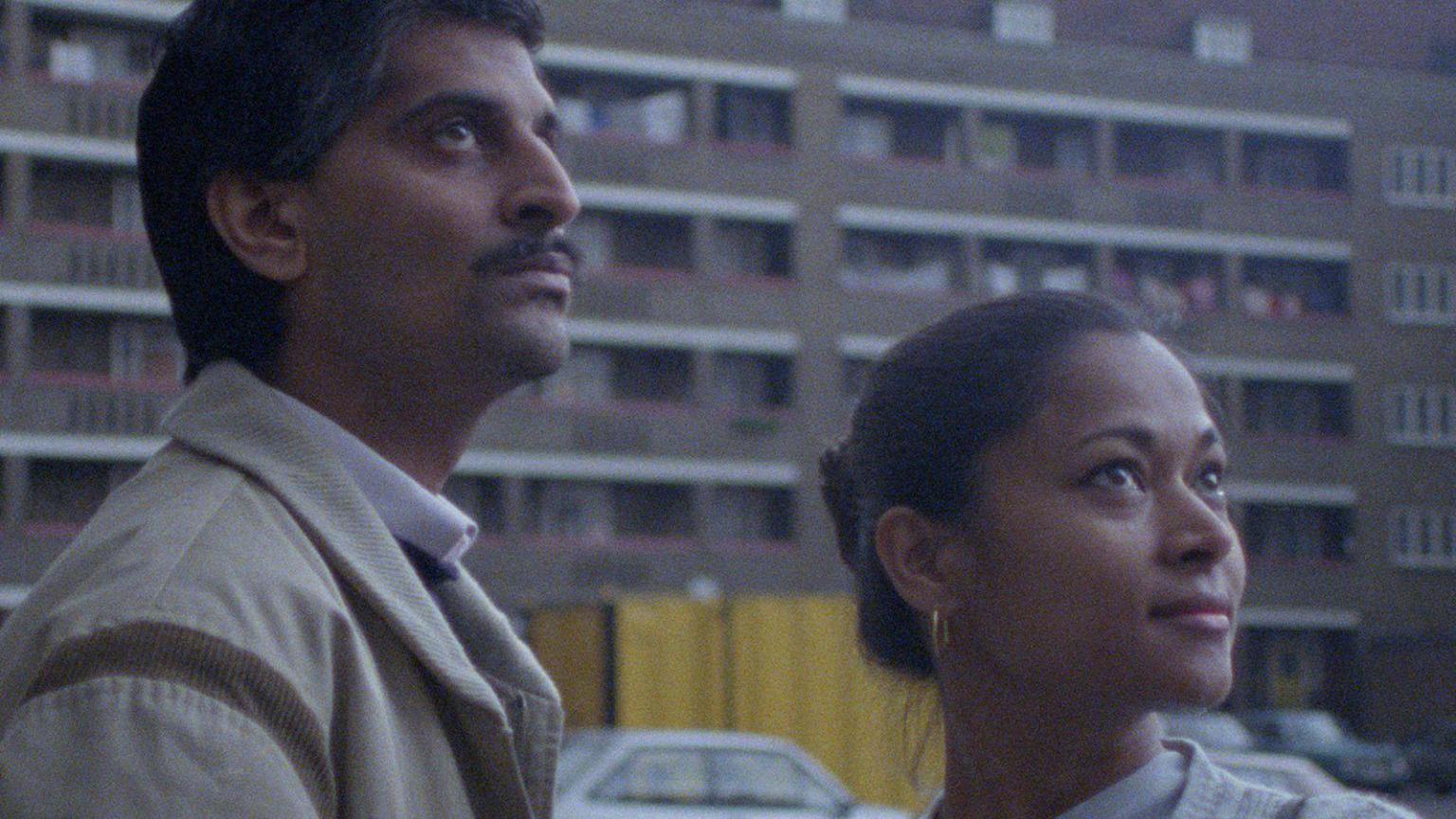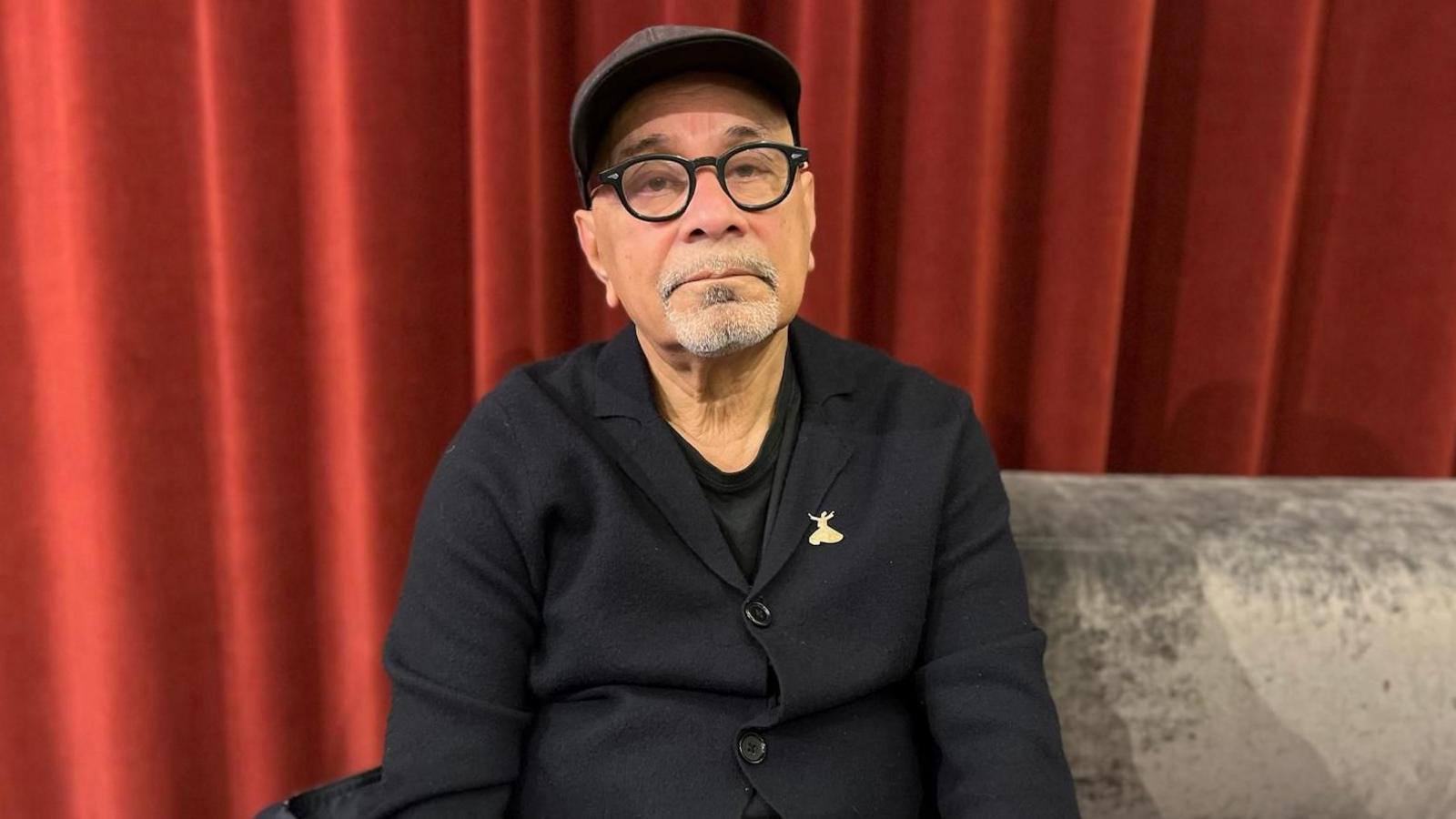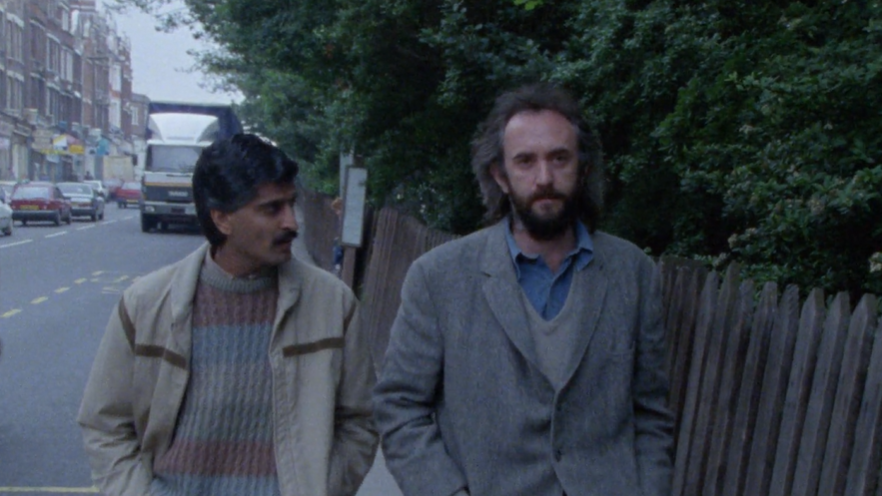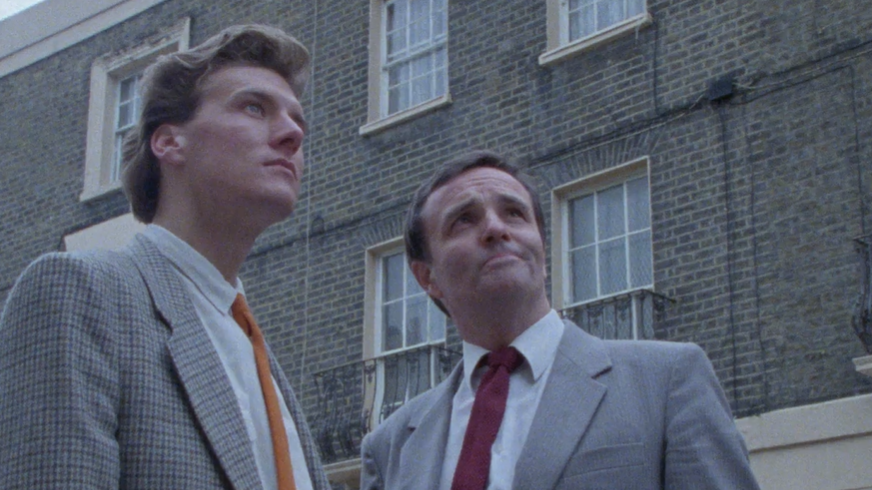London 1980s housing crisis film shown at festival

Hotel London follows Banlgadeshi couple (played by Aftab Sachak and Alpana Sengupta) navigate their way to a safe home
- Published
"When you do films on current issues you expect them to lose relevance.
"But it's sad that this production nearly 40 years later is still - or has become - even more eerily relevant."
Writer-director Ahmed Alauddin Jamal is describing his film which he says holds a mirror to London's housing crisis in the past and present.
In 1987, the London filmmaker wove a strong and simple tale about a British Bangladeshi family made homeless in the mid 1980s to raise awareness of the migrant struggle.
Hotel London recently premiered at the London Film Festival after it was remastered as part of a British Film Institute archive project.
The film follows a young family confronting the harsh reality of unstable temporary housing in the capital, amid sky-rocketing homelessness and racism.
Placed in a bed and breakfast by the local authority, the family encounter other people from different backgrounds who are waiting to be housed - a young Jonathan Pryce plays an Irish rough sleeper who drifts around London.
The production was filmed on location in B&Bs after months of research with homeless individuals and blends fiction with video activism.

Ahmed Alauddin Jamal
Jamal explains that the film was made "after the war euphoria was over and widespread socialism was beginning to crumble".
He added: "Our economy came a bit more American after Margaret Thatcher. The society became more business and profit-making. Individualistic.
"There were people taking advantage of that."
Ahmed manifested this aspect with two people in the film who are seen always looking to make the most profit from their properties and predicting their future value.
"The ideology was to make people become owners and hence become more pro-establishment and have a stake in society.
"It became a free-for-all. Not dissimilar to now but for different reasons."
'Normal people became homeless'
He describes how the shift in London made a huge number of people homeless leaving them battling for temporary accommodation.
By 1989, over 40,000 London households were classed as homeless according to statistics from the Department of Environment - roughly tripling in 10 years.
"A lot people became homeless quite quickly," he said.
"A lot people who you wouldn't imagine who would become homeless. Even now there are lots in temporary housing, it's worse now apparently.
"But in this case interest rates went up sharply at the time and houses became negative equity and people couldn't pay their mortgages.
"What we wanted to show was that it was ordinary people who were sleeping on the streets.
"Not people with addiction problems, people with jobs."
Ahmed makes reference to a scene where a man dressed in a suit sits on his makeshift bed on the streets.
"It was unprecedented at the time.
"I found that one of the main reasons too was bereavement, which came to my surprise."

The young Jonathan Pryce (right) who plays an Irish rough sleeper
The Retake Film and Video Collective, co-founded by Jamal, was producing collaborative independent filmmaking throughout the 1980s and 1990s, as part of a wider film workshop movement during a period of intense social upheaval.
The workshops were known for their issue-driven films working across drama, documentary and experimental modes and were run by bodies such as the BFI, Arts Council, charities and the newly established Channel 4.
"We came together to challenge the racism we were experiencing at the time of Thatcher," explained Jamal.
He added that a lot of new immigrants from east African and south Asia had arrived, settled down, were doing well and had found a place in society, but he "wanted to show that we had come not to be minorities within society, but to be part of British society".
He added: "Our work was very integrated and we strived to show ourselves as part of the community.
"The policy at the time, for more segregating, funding for 'ethnic minorities' for example, a mosque for the Muslim community.
"Instead of before, there may have just been a multi-faith community centre, and I think that contributed to the divisions you see today.
"That, and the fact that a lot of immigrants experienced racism - as you see in the film - and so we promoted secularism and the values of British society."

Two men assess real estate for the best way to earn as much as they can
Whether or not those experiencing temporary housing today have any better life today is definitely in question Jamal says.
But accommodating a swelling city with a dwindling house stock appears to remain just as relevant and unresolved 38 years later.
The BFI National Archive archive project is restoring 14 films in recognition of the cultural and political significance and enduring legacy of the Black and South Asian British Workshop movement.
Hotel London is the first release and the rest will follow in the new year.
Listen to the best of BBC Radio London on Sounds and follow BBC London on Facebook, external, X, external and Instagram, external. Send your story ideas to hello.bbclondon@bbc.co.uk, external